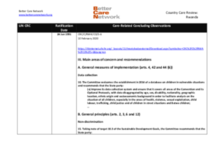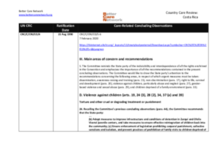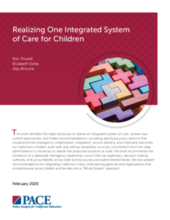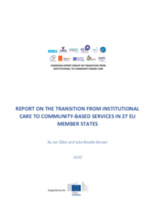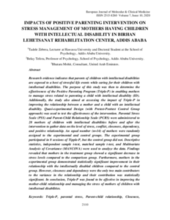Displaying 141 - 150 of 494
This Country Care Review includes the care-related concluding observations adopted by the Committee on the Rights of the Child and the Committee on the Rights of Persons with Disabilities, as well as other care-related concluding observations, ratification dates, and links to the Universal Periodic Review and Hague Intercountry Adoption Country Profile.
This research explains how and why homelessness occurs among youth with serious mental health struggles after aging out of residential and transitional living programmes.
This country care review includes the care related Concluding Observations adopted by the Committee on the Rights of Persons with Disabilities and the Committee on the Rights of the Child.
This brief identifies the steps necessary to realize an integrated system of care, reviews two current approaches, and makes recommendations—including specifying policy reforms that would promote interagency collaboration, integration, service delivery, and improved outcomes for California’s children, both with and without disabilities.
The current study provides a more nuanced account of foster youth with disabilities’ transitions into adulthood.
The objective of this study is to understand the use of parental-group intervention for helping parents understand the problems of their children and to develop skills to deal with those problems.
The aim of this report was to collate information about policies and plans, changes over time, strengths and areas of concerns relevant to advancement in deinstitutionalisation in 27 EU countries and for six target groups: adults with disabilities, adults with mental health problems, children (including children with disabilities), unaccompanied or separated migrant children, homeless persons and older adults.
In the light of the COVID19 pandemic and with the aim to support a disability-inclusive response to the crisis, International Disability Alliance (IDA) has launched this webpage to share the most recent updates and resources as they become available.
This post from the UNICEF Europe and Central Asia website describes how UNICEF is mobilizing to protect marginalized and vulnerable children – including those with disabilities – against the impact of COVID 19 in the region.
The purpose of this study was to determine the effectiveness of the Positive Parenting Program (Triple-P) in enabling mothers to manage stress related to parenting a child with intellectual disability (ID).

